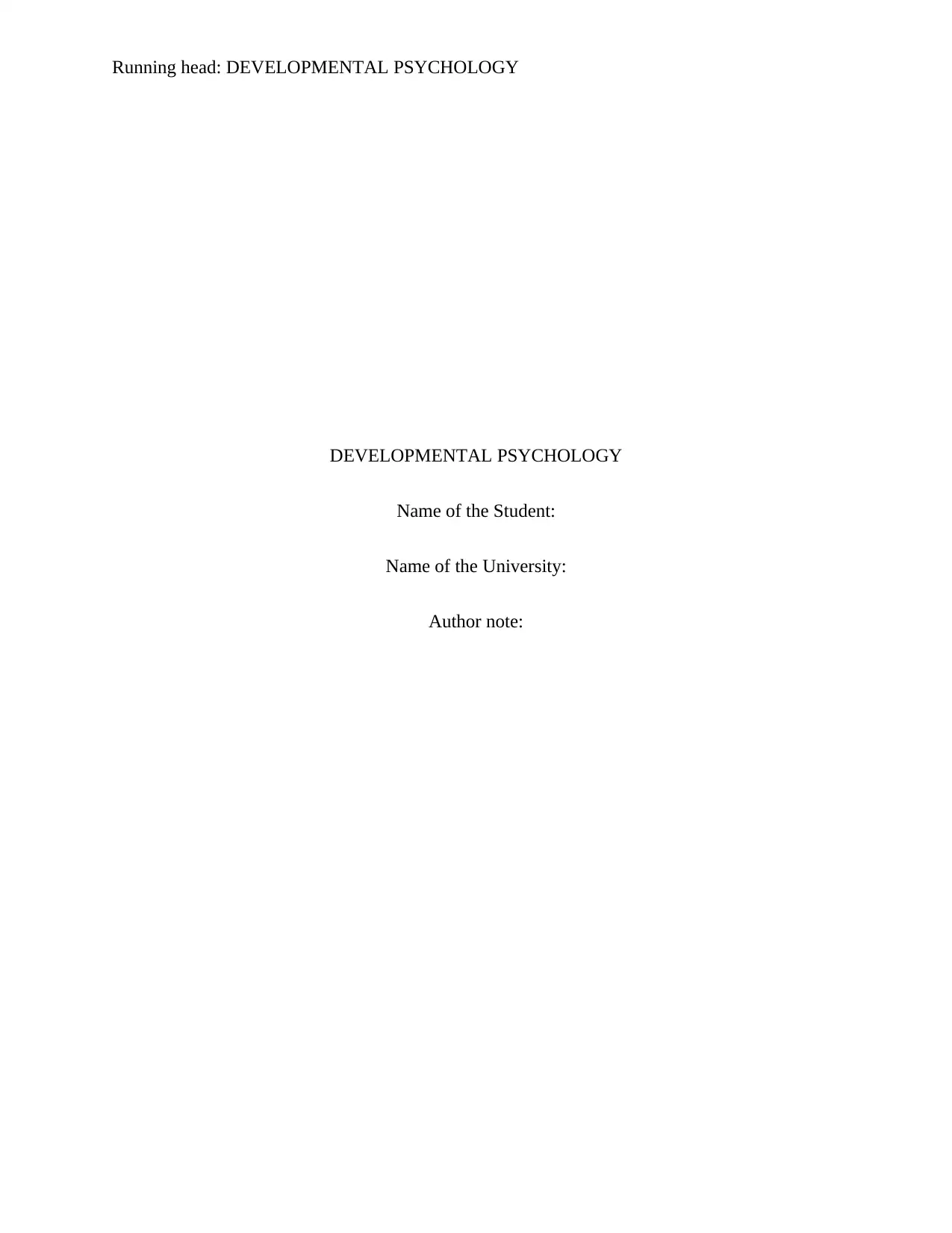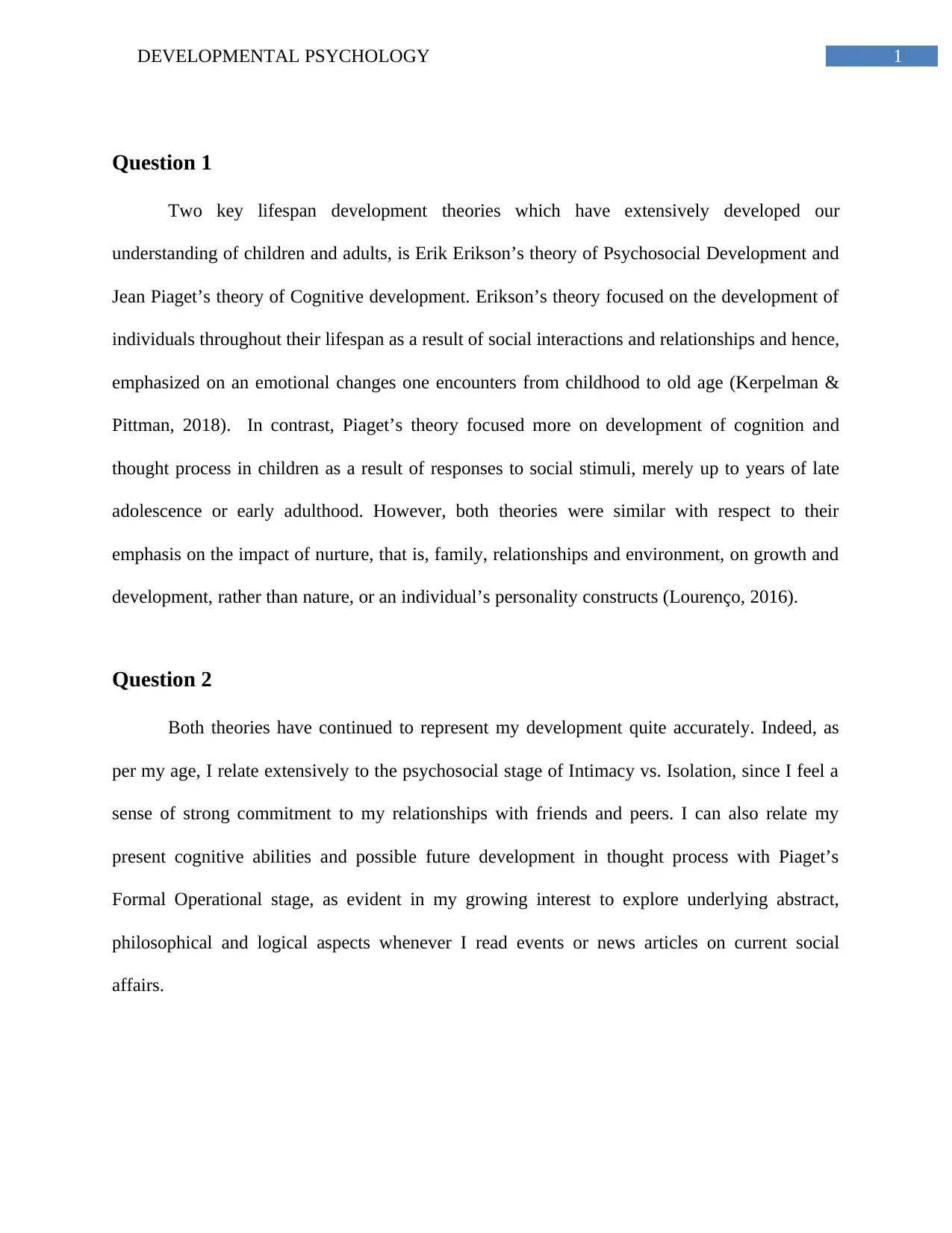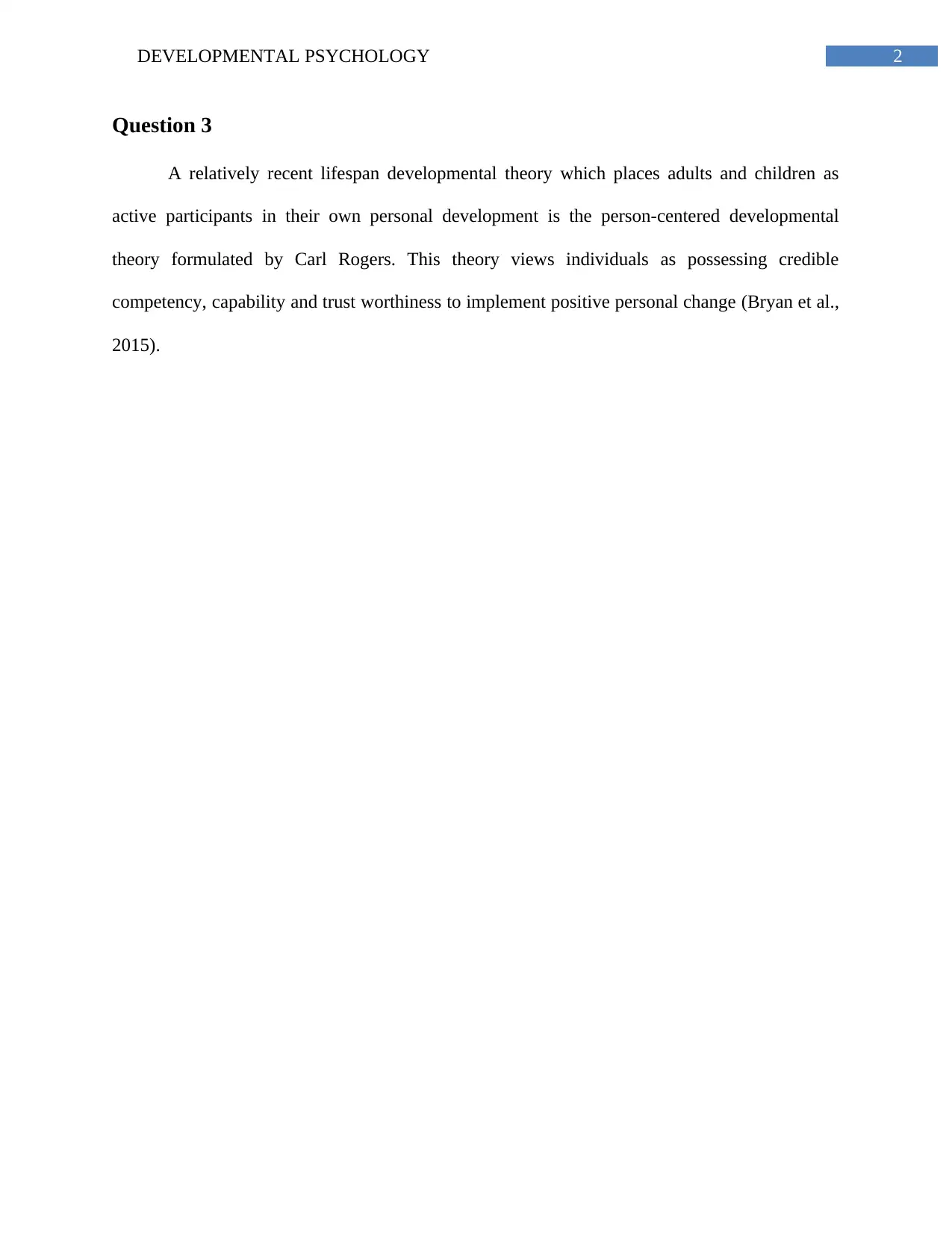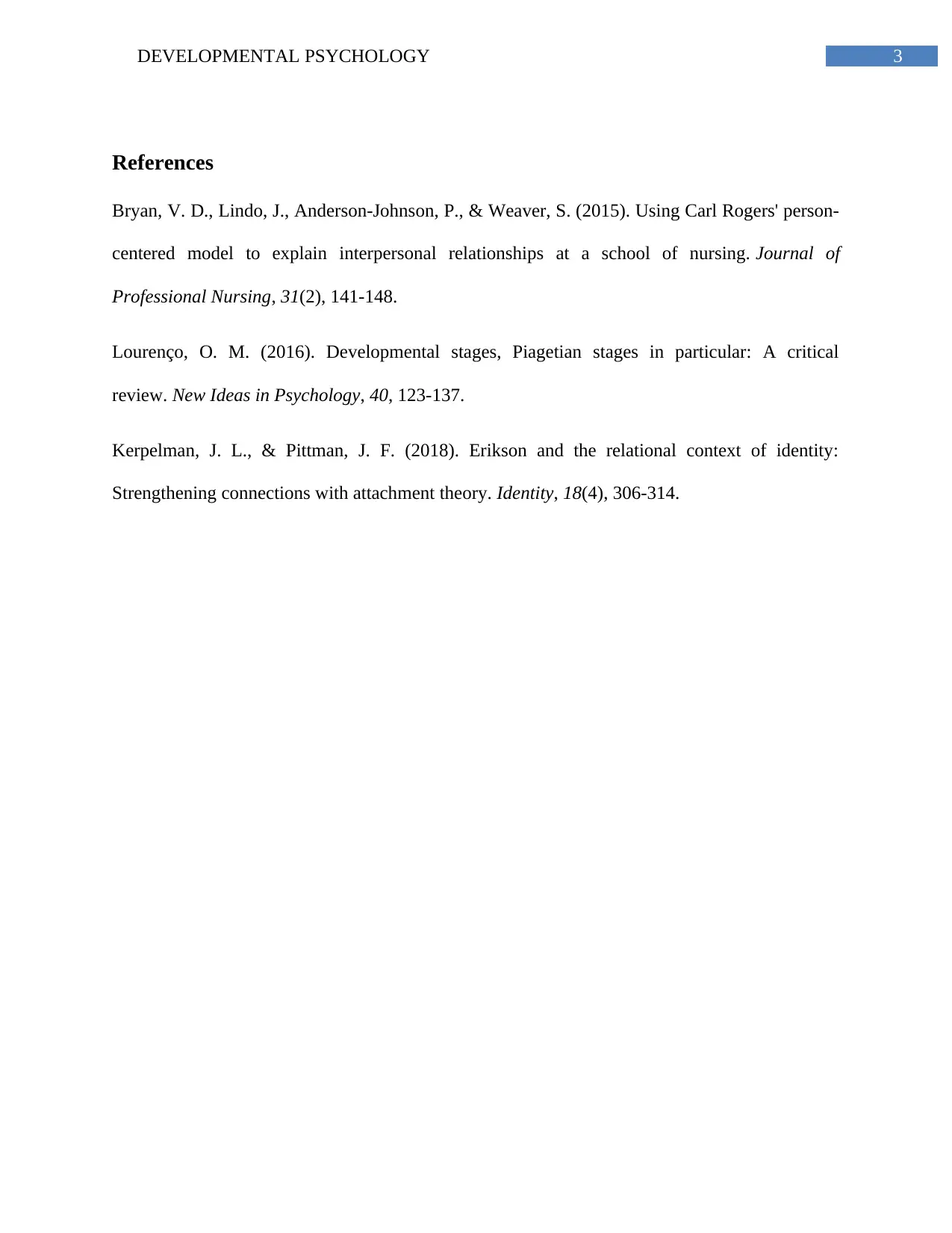Developmental Psychology Assignment: Erikson, Piaget, and Rogers
VerifiedAdded on 2022/11/18
|4
|462
|1
Homework Assignment
AI Summary
This assignment explores the core concepts of developmental psychology, focusing on the theories of Erik Erikson, Jean Piaget, and Carl Rogers. The assignment begins by comparing and contrasting Erikson's theory of psychosocial development and Piaget's theory of cognitive development, highlighting their emphasis on the influence of family, relationships, and environment on growth. The student then relates these theories to their own personal development, specifically referencing the Intimacy vs. Isolation stage and the Formal Operational stage. Finally, the assignment introduces Rogers' person-centered developmental theory, emphasizing the individual's capability for positive personal change. The assignment demonstrates an understanding of key psychological concepts and their application to real-world scenarios.
1 out of 4











![[object Object]](/_next/static/media/star-bottom.7253800d.svg)